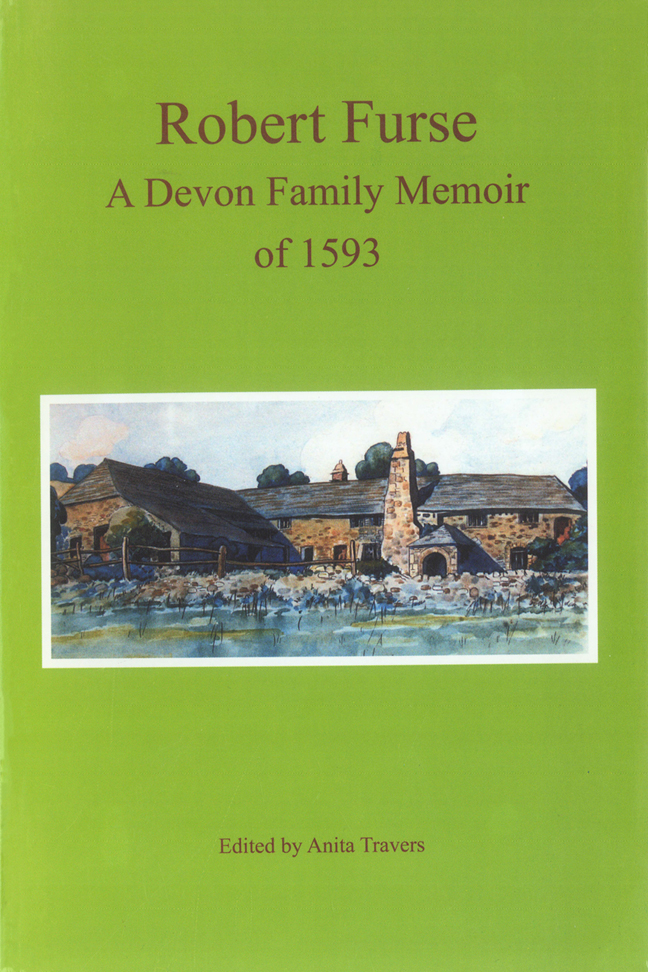Book contents
- Frontmatter
- Contents
- List of Illustrations
- Preface and Acknowledgements
- Introduction
- Editorial Practice and Abbreviations
- Robert Furse's Book
- Appendix I Furse's Legal Cases
- Appendix II Sports and Pastimes Mentioned by Furse
- Appendix III Furse's Family and Pedigree
- Glossary
- Bibliography
- Indexes
- Devon and Cornwall Record Society Publications
Appendix II - Sports and Pastimes Mentioned by Furse
Published online by Cambridge University Press: 15 February 2024
- Frontmatter
- Contents
- List of Illustrations
- Preface and Acknowledgements
- Introduction
- Editorial Practice and Abbreviations
- Robert Furse's Book
- Appendix I Furse's Legal Cases
- Appendix II Sports and Pastimes Mentioned by Furse
- Appendix III Furse's Family and Pedigree
- Glossary
- Bibliography
- Indexes
- Devon and Cornwall Record Society Publications
Summary
Furse approved of those of his ancestors who shone in manly sports, and listed their accomplishments, for example at pages 30, 31, 43, 53, 55, 56, 67, 135-6.
Joseph Strutt collected information as The Sports and pastimes of the people of England in the early nineteenth century, and the specialist chapters in C.T. Onions Shakespeare's England (1917) are instructive, as is Christina Hole's English Sports and Pastimes. Richard Carew's Survey of Cornwall, 1602, gives contemporary accounts of archery and wrestling (pp. 75-6).
Statute law struggled to encourage those sports and activities which prepared young men for war, and to ban sedentary pursuits that went with gambling and dissipation. An act for the maintenace of artillery and debarring of unlawful games, 33 Henry VIII c. 9 (1541/2) forbade bowling, coyting, coysh, cayls, half bowls, tennis, dicing, tables or carding. Sir Thomas Elyot approved of wrestling, running and swimming because they could be useful in war, and of course riding and swordplay. Hunting was an imitation of battle. He thought dice mere idleness because it was a game of chance, cards and tables at least required a little wit, and chess much more. Use of the bow was essential for war, and he grudgingly approved tennis for young men, but was against ‘clash', bowls, quoits and football. ‘To ride cumlie: to run faire at the tilte or ring: to plaie at all weapones; to shote faire in bow, or surelie in gon’ were the ‘noble exercises’ of the Tudor period, and so too were running, vaulting, wrestling, dancing and singing, and all similar employments ‘conteining either some fitte exercise for warre, or some pleasant pastime for peace,’ wrote Roger Ascham. The Cotswold Games, held in the last quarter of the sixteenth century, included wrestling, leaping, cudgel playing, sword-and-buckler, pitching the bar, throwing the sledge(hammer), and tossing the pike. Leaping, often equated with vaulting, generally meant skilled moves, somersaults, leaping through hoops and so on. Sword and buckler was a dance-like combat regulated by music.
Wrestling, or wraxelling, was held in particularly high regard in the west country as a manly art. Devon wrestling was similar to Cornish, but kicking was allowed, with specially reinforced boots.
- Type
- Chapter
- Information
- Robert FurseA Devon Family Memoir of 1593, pp. 163 - 165Publisher: Boydell & BrewerFirst published in: 2024

